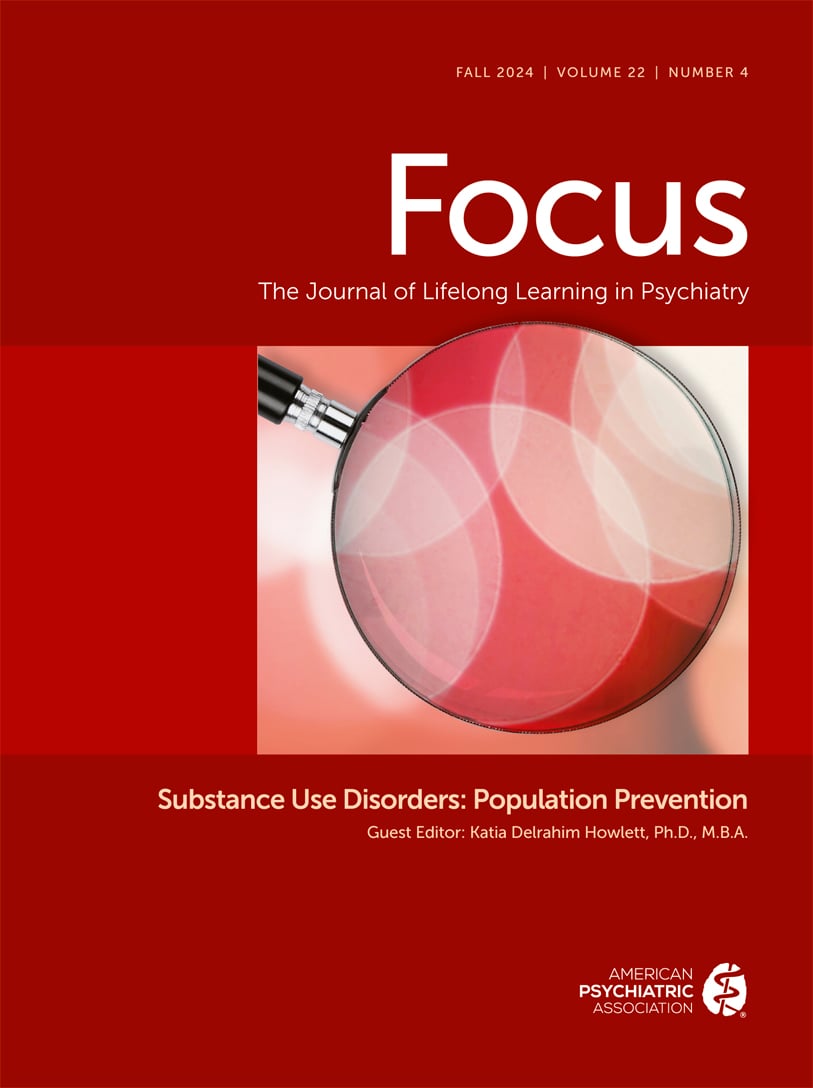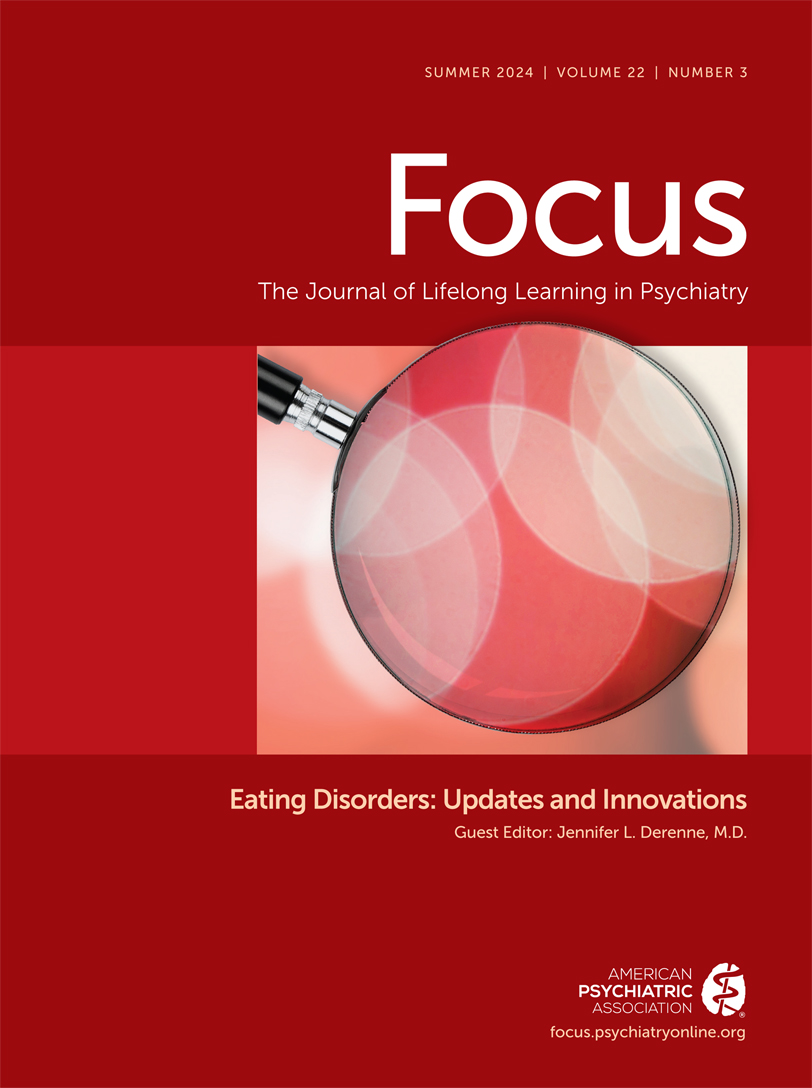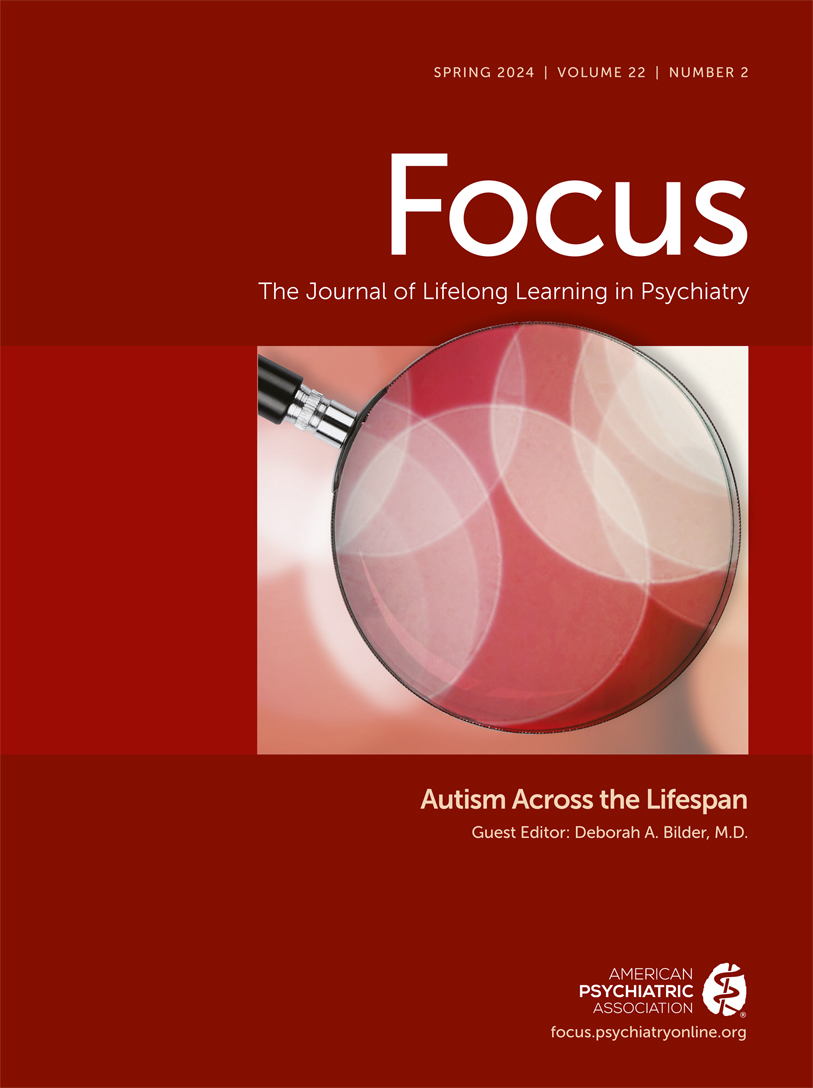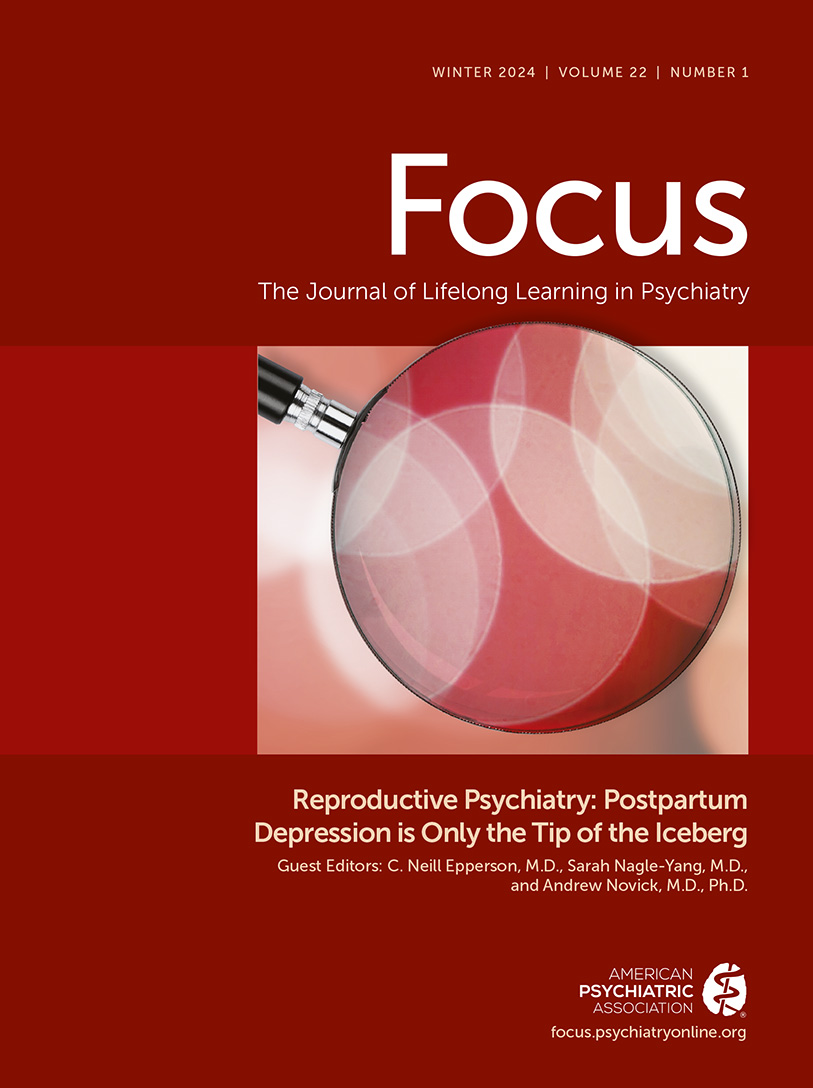Focus
- Volume 18
- Number 4
- October 2020
From the Guest Editor
Clinical Synthesis
Publication date: 01 October 2020
Pages364–367Although, gratifyingly, research on the treatment of schizophrenia has increasingly focused on first-episode and prodromal patient populations, it is still recognized that many patients with more chronic illnesses exhibit a suboptimal response to ...
https://doi.org/10.1176/appi.focus.20200025Publication date: 01 October 2020
Pages368–374The brain is no doubt the “organ” of psychiatry; yet, over the years, few evidence-based classifications of psychiatric disorders have been based on brain mechanisms. The National Institute of Mental Health notably proposed one such system, known as ...
https://doi.org/10.1176/appi.focus.20200022Publication date: 01 October 2020
Pages375–385Physicians who treat patients with schizophrenia frequently encounter complex clinical situations not fully addressed by published treatment guidelines. Some of these situations lead to antipsychotic polypharmacy, often prescribed when clinical and social ...
https://doi.org/10.1176/appi.focus.20190047Publication date: 01 October 2020
Pages386–390Schizophrenia is a complex psychiatric disorder that affects cognitive, perceptual, and emotional functioning. The currently available evidence suggests heterogenous intertwining of biological and psychosocial etio-pathogeneses. Clinical and research ...
https://doi.org/10.1176/appi.focus.20200026Publication date: 01 October 2020
Pages391–401The investigation of immune system abnormalities in schizophrenia, although ongoing for decades, has become a popular area of research. The authors present a selected review of studies informing on schizophrenia as a potential inflammatory disorder, ...
https://doi.org/10.1176/appi.focus.20200015Improvement in Medical Practice
Publication date: 01 October 2020
Pages402–423Schizophrenia is associated with significant health, social, occupational, and economic burdens, including increased mortality. Despite extensive and robust research on the treatment of individuals with schizophrenia, many individuals with the illness do ...
https://doi.org/10.1176/appi.focus.20200034Communication Commentary
Ethics Commentary
21st-Century Psychiatrist
Publication date: 01 October 2020
Pages432–435More than 11 million adults in the United States have a serious mental illness. Outcomes for these illnesses are good when appropriate treatments are received; however, rates of delivery and utilization of evidence-based care for this population are ...
https://doi.org/10.1176/appi.focus.20200023Ask the Expert
Bibliography
Influential Publications
Publication date: 01 October 2020
Pages443–455Background: Schizophrenia is one of the most common, burdensome, and costly psychiatric disorders in adults worldwide. Antipsychotic drugs are its treatment of choice, but there is controversy about which agent should be used. We aimed to compare and rank ...
https://doi.org/10.1176/appi.focus.18306Publication date: 01 October 2020
Pages456–465Treatment-resistant schizophrenia (TRS), the persistence of positive symptoms despite ≥2 trials of adequate dose and duration of antipsychotic medication with documented adherence, is a serious clinical problem with heterogeneous presentations. TRS can ...
https://doi.org/10.1176/appi.focus.18309Publication date: 01 October 2020
Pages466–481Background: The novel coronavirus pandemic calls for a rapid adaptation of conventional medical practices to meet the evolving needs of such vulnerable patients. People with coronavirus disease (COVID-19) may frequently require treatment with psychotropic ...
https://doi.org/10.1176/appi.focus.18308Publication date: 01 October 2020
Pages482–492Background: There is conflicting evidence on the association between antipsychotic polypharmacy and metabolic syndrome in schizophrenia. We conducted a review of published systematic reviews to evaluate evidence on the association between metabolic ...
https://doi.org/10.1176/appi.focus.18307Past Issues
View Issues Archive
Vol. 22 | No. 4

Vol. 22 | No. 3

Vol. 22 | No. 2
